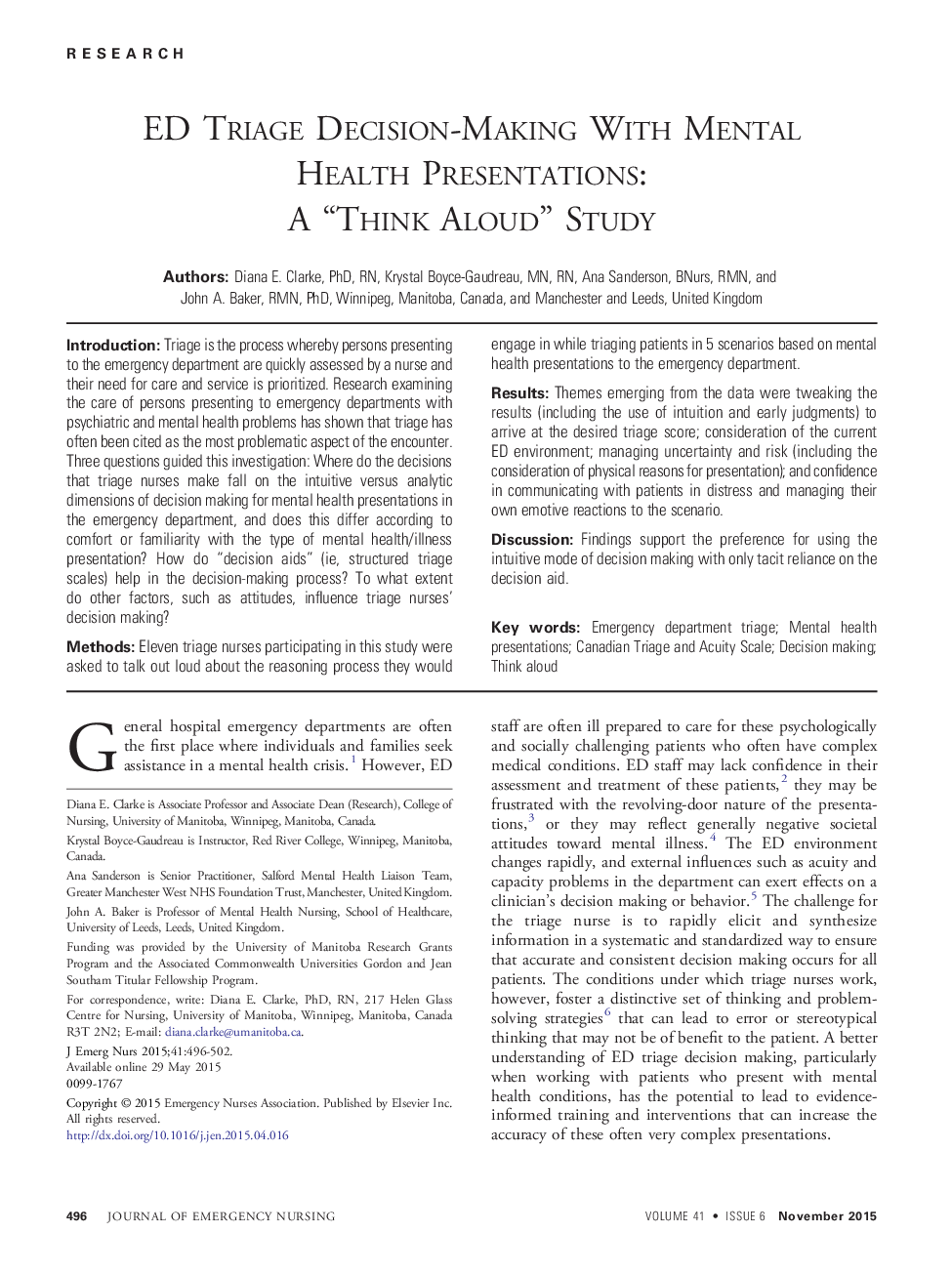| Article ID | Journal | Published Year | Pages | File Type |
|---|---|---|---|---|
| 2609536 | Journal of Emergency Nursing | 2015 | 7 Pages |
IntroductionTriage is the process whereby persons presenting to the emergency department are quickly assessed by a nurse and their need for care and service is prioritized. Research examining the care of persons presenting to emergency departments with psychiatric and mental health problems has shown that triage has often been cited as the most problematic aspect of the encounter. Three questions guided this investigation: Where do the decisions that triage nurses make fall on the intuitive versus analytic dimensions of decision making for mental health presentations in the emergency department, and does this differ according to comfort or familiarity with the type of mental health/illness presentation? How do “decision aids” (ie, structured triage scales) help in the decision-making process? To what extent do other factors, such as attitudes, influence triage nurses’ decision making?MethodsEleven triage nurses participating in this study were asked to talk out loud about the reasoning process they would engage in while triaging patients in 5 scenarios based on mental health presentations to the emergency department.ResultsThemes emerging from the data were tweaking the results (including the use of intuition and early judgments) to arrive at the desired triage score; consideration of the current ED environment; managing uncertainty and risk (including the consideration of physical reasons for presentation); and confidence in communicating with patients in distress and managing their own emotive reactions to the scenario.DiscussionFindings support the preference for using the intuitive mode of decision making with only tacit reliance on the decision aid.
